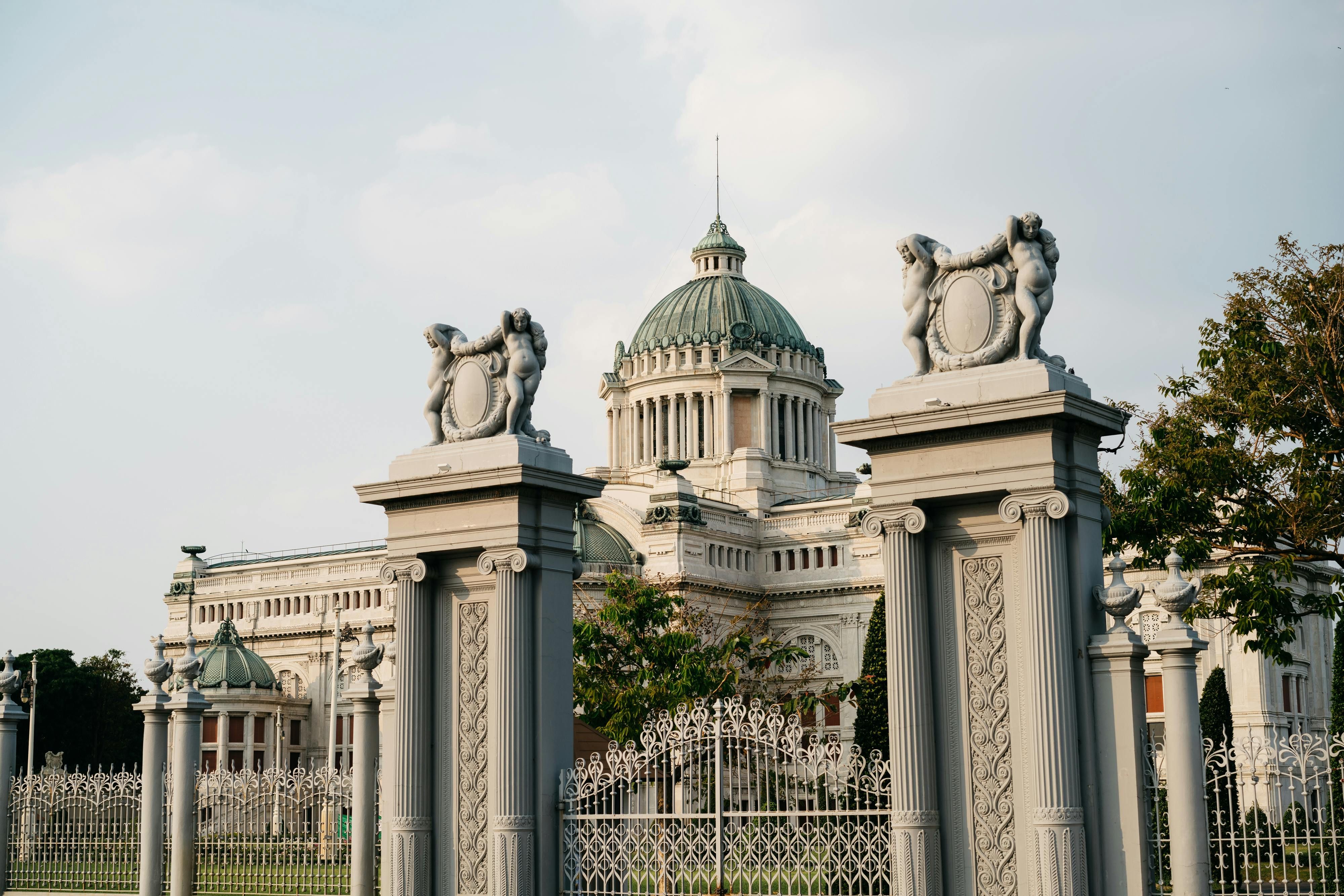Scholars in America confront lengthy imprisonment following accusations of disrespecting the Thai royal family.
In a chilling turn of events, an esteemed American academic residing in Thailand faces potential years behind bars for allegedly breaching the kingdom's stringent Lese Majeste laws. Paul Chambers, a renowned lecturer at Naresuan University in Thailand, is wrangled in this predicament, adding yet another chapter to the country's notorious reputation for silencing dissent.
Chambers, who specializes in analyzing Thailand's military and politics, appeared in court on Tuesday after presenting himself to the local police. His lawyer, Wannaphat Jenroumjit, revealed that the arrest warrant was issued following a complaint filed by a regional army command in relation to a post on an international website. Alongside Lese Majeste charges, Chambers is also facing charges under the Computer Crimes Act.
Thailand's Lese Majeste laws rank among the world's most rigorous, with critics of the monarchy facing a maximum 15-year prison sentence for each offense. Hundreds of individuals have been prosecuted under these laws in recent years. A warrant for Chambers' arrest was issued last week, and he fears he could be imprisoned for 15 years.
Chambers, a scholar and lecturer at Naresuan University's Centre of ASEAN Community Studies, is renowned for his expert insights on Southeast Asia, frequently contributing to news articles on the region. The charges against him are seen as a dire threat to academic freedom in Thailand.
"Unlike other Lese Majeste cases, this case involves an extremely respected academic whose work focuses deeply on the civil-military relations in Thailand and whose expertise is widely recognized within the academic community," said Akarachai Chaimaneekarakate, advocacy lead for Thai Lawyers for Human Rights.
The United States Department of State has expressed concern over Chambers' arrest and is providing consular assistance. "The United States strongly supports freedom of expression around the world. We regularly urge Thai authorities to protect freedom of expression in accordance with Thailand's international obligations," a State Department spokesperson told CNN.
Thailand's conservative, military-backed establishment has long ruled the country, often staging coups to suppress political opposition. The military's outsized influence over the country's politics continues despite repeated popular votes in favor of the military's political opponents.
The Lese Majeste law has been routinely used to silence critics and opposition voices, and rights groups claim that the right to freedom of expression in Thailand has come under increasing attack since 2020, when nationwide youth-led protests called for constitutional and democratic reforms, openly criticizing the monarchy and questioning its power and wealth.
Those protests, which occurred four years after King Maha Vajiralongkorn succeeded his father King Bhumibol, who had reigned for seven decades, marked a significant shift in the Thai political landscape. Despite the change to civilian leadership in 2023, surveillance and intimidation against activists and students continue, according to Thai Lawyers for Human Rights.
The legal advocacy group reported that at least 1,960 individuals have been prosecuted or charged for their participation in political assemblies and for speaking out from July 2020 to January 2025, with at least 277 prosecuted for Lese Majeste. One of the most prominent among these is Arnon Nampa, a Thai activist facing a cumulative sentence of 18 years in prison for a plethora of Lese Majeste and other charges relating to his advocacy for monarchy reform during the 2020 protests.
A much-anticipated bill that could offer amnesty for those prosecuted in politically motivated cases is set to be introduced to Thailand's parliament this week. However, it remains uncertain whether Lese Majeste will be included in the bill.
The high-profile case of Paul Chambers could have profound implications for the Thai military and broader Thai society, according to some analysts. "The cost to the Thai military is high, as this case will attract the kind of international attention and scrutiny the army wants to avoid," said Thitinan Pongsudhirak, a political scientist from Chulalongkorn University. "This case tightens the lid on academic freedom, and will reinforce the closing of Thai minds and undermine the intellectual and research ecosystem essential for driving Thailand's economy forward."
- Paul Chambers, a scholar specializing in Southeast Asia, is facing charges under Thailand's Lese Majeste laws and the Computer Crimes Act, a situation that is seen as a threat to academic freedom in Asia.
- The United States Department of State, concerned about Chambers' arrest, has expressed support for freedom of expression worldwide and regularly urges Thai authorities to comply with Thailand's international obligations.
- Thailand's use of the Lese Majeste law to silence critics and opposition voices has been routine, intensifying since 2020 when nationwide youth-led protests called for constitutional and democratic reforms. Arnon Nampa, a Thai activist, is one of the prominent figures facing prosecution under this law.








